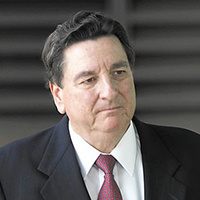Matamoras Misdemeanor Lawyer, Pennsylvania
Sponsored Law Firm
-
 x
x

Click For More Info:
-
Law Office of Mark S. Guralnick
55 Madison Avenue 4th Floor Morristown, NJ 07960» view mapCriminal Defense Law Dedicated. Fearless. Successful.
Mark S. Guralnick and his legal team have helped clients throughout the USA and across the world by applying unparalleled dedication and hard work to each case.
800-399-8371
Not enough matches for Matamoras Misdemeanor lawyer.
Below are all Matamoras Criminal lawyers.
Nicholas R. Sabatine
✓ VERIFIEDAccident & Injury, Divorce & Family Law, Estate, Criminal, Business
When you've been injured in an accident that was caused by another's negligence or carelessness, you want to do everything possible to make sure your ... (more)
David W. Skutnik
Bankruptcy, Criminal, Real Estate, Deportation
Status: In Good Standing Licensed: 39 Years
Steven Ronald Savoia
Misdemeanor, Civil & Human Rights, Commercial Bankruptcy, Bankruptcy & Debt
Status: In Good Standing
Ashley Grace Zimmerman
Real Estate, Divorce & Family Law, Criminal
Status: In Good Standing Licensed: 14 Years
 Mark Guralnick Morristown, NJ
Mark Guralnick Morristown, NJ AboutLaw Office of Mark S. Guralnick
AboutLaw Office of Mark S. Guralnick Practice AreasExpertise
Practice AreasExpertise

